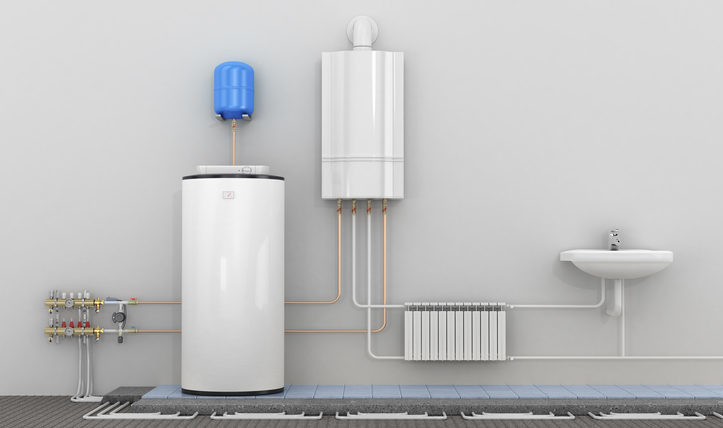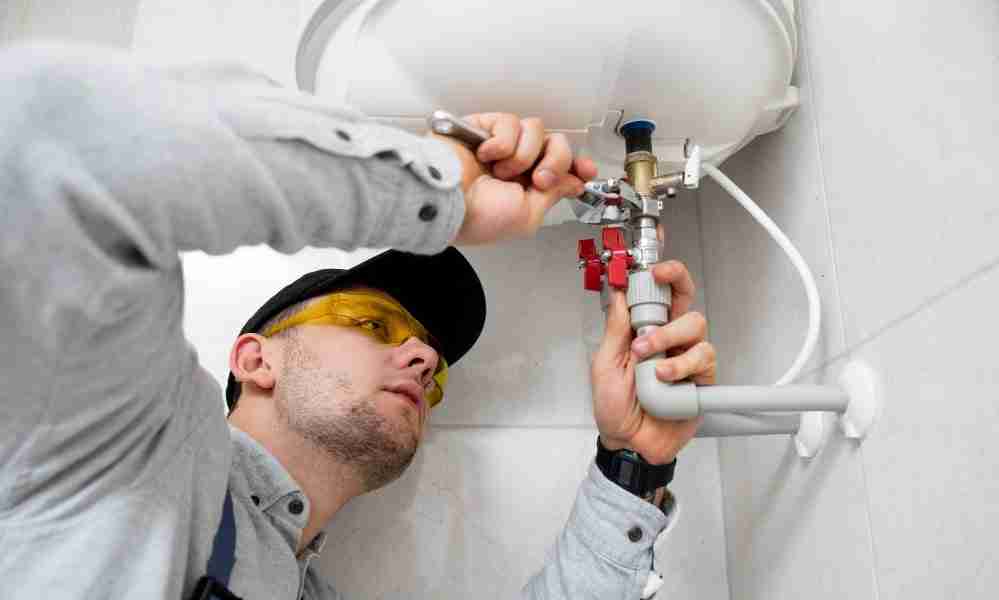The writer is making a few great points on the subject of Six Benefits of a Tankless Hot Water Heater in general in the content down the page.

In a world where ease and efficiency reign supreme, it's not a surprise that home owners are frequently in search of smarter ways to manage their home's energy usage and convenience. One advancement that has actually progressively acquired appeal is the tankless water heater. But exactly what makes these systems stand out from the conventional tank-based models most of us grew up with? Let's dive in and explore the advantages of tankless water heaters, helping you choose if it's time to make the switch in your house.
Intro
Photo this: you step into the shower after a long day, anticipating a comforting waterfall of hot water, just to be welcomed by icy beads due to the fact that the last person used all of it up. Noise acquainted? Standard water heaters save a fixed quantity of warm water, meaning you go to the mercy of that container's supply. Tankless systems, on the other hand, warm water on demand. Say goodbye to running out mid-shower, say goodbye to wrestling with timetables simply to make sure hot water is offered.
Comprehending Tankless Water Heaters
What Are Tankless Water Heaters?
Tankless hot water heater, in some cases called on-demand or instant hot water heater, supply hot water only as it's needed. Instead of saving gallons of pre-heated water, these devices kick into action the minute you switch on the tap. Water goes through a heat exchanger, heating up in real-time, meaning you obtain an undisturbed flow of warm water without the requirement for a huge container sitting lazily by.
Exactly how Do They Vary from Standard Systems?
Typical heating units hold a tank of hot water, using power to maintain that storage tank at a consistent temperature. Tankless devices remove the standing supply, minimizing squandered energy and the cumbersome footprint of a large cylinder. Basically, you're upgrading from a "accumulation" attitude to a "made-to-order" method.
Usual Types of Tankless Systems
Tankless water heaters generally can be found in two varieties: gas and electric. Gas versions tend to provide greater flow prices, suitable for larger houses, while electrical models typically serve smaller sized homes and are typically less complicated to install. In addition, some systems are developed for point-of-use (offering one fixture) while others can deal with the whole home's hot water requirements.
Trick Advantages of Tankless Hot Water Heater
Energy Effectiveness and Expense Financial Savings
Say goodbye to heating a titan container's well worth of water and keeping it cozy throughout the day. Tankless heaters minimize standby energy losses, which can reduce utility expenses. While the initial price may be higher, the long-term cost savings frequently warrant the financial investment.
3. Space-Saving Style
If your home is short on storage, removing the large tank liberates beneficial room. Tankless systems are small and can typically be installed on walls, tucked away in edges, or mounted in tight energy wardrobes without having all to oneself the entire area.
4. Longer Lifespan
A well-kept tankless hot water heater can outlast its tank-based cousin. Typical storage tanks could last 10-15 years, while tankless models can maintain chugging along for 20 years or more, making them a strong financial investment over time.
1. Limitless Hot Water Supply
Ever before had to schedule showers so every person obtains their fair share of hot water? With tankless, that ends up being a distant memory. As long as the heating system's flow ability isn't surpassed, you can take back-to-back showers without turning into a popsicle.
5. Improved Water High Quality
Keeping water in a container can sometimes result in debris build-up or a somewhat "off" preference. With tankless systems, fresh water is warmed right away, lowering the opportunities of debris accumulation and possibly supplying cleaner-tasting water.
Factors to consider Before Switching
Though the benefits are engaging, it's important to think about a few factors prior to completely devoting.
Examining Your Home's Water Usage Patterns
If your home simultaneously makes use of multiple components with high hot water need, ensure the device's flow price meets your requirements. Knowing your use patterns helps you pick the ideal dimension and sort of tankless heating system.
Upkeep and Care Tips
Tankless systems are relatively low maintenance, however they aren't set-it-and-forget-it devices.
Routine Cleansing and Descaling
Hard water minerals can develop in the heat exchanger, impacting performance. Routine descaling (often advised every year) maintains the system performing at peak performance.
Annual Expert Inspections
A yearly checkup from a professional makes certain small issues are captured early. They'll examine the unit's performance, seek leakages, and assist preserve optimal efficiency.
Preliminary Financial Investment Expenses
Tankless heating systems generally include a higher upfront price. In between the unit itself and potential setup adjustments, the first cost might provide you sticker shock. Yet keep in mind to see it as a long-lasting financial investment.
Setup Needs
Depending on your home's infrastructure, you might need extra electric capability or gas line upgrades. Guarantee you recognize the installation needs and speak with a professional to prevent surprises.
Ensuring Appropriate Air Flow
For gas models, correct ventilation is important to safely expel exhaust gases. Make sure airing vent systems are tidy and correctly set up to stop any kind of possible safety threats.
Contrasting Different Brands and Versions
Not all tankless water heaters are developed equivalent.
Looking Into Trustworthy Producers
Seek reputable brand names with a history of creating high quality devices. A reliable supplier frequently supplies much better client support and longer guarantees.
Installation: DIY or Professional?
While some house owners cherish taking on tasks themselves, tankless setup could not be the very best time to burst out the toolbox.
Advantages and disadvantages of DIY Installment
A do it yourself set up could save cash, yet it includes threats. Incorrect setup can cause inefficiency or safety problems. If you're handy and have experience, it might be viable-- however wage caution.
Reviewing Reviews and Individual Comments
Individual testimonials and comments from neighbors or good friends that have gone tankless can offer beneficial insights. In some cases, real-life experiences can be extra telling than advertising pamphlets.
When to Call an Expert Plumbing Professional
For the majority of, calling a professional makes certain whatever's done properly. A professional plumber recognizes local codes, sizing needs, and venting criteria, decreasing the threat of accidents.
Optimizing Effectiveness
You've invested in a tankless device-- now maximize its performance.
Ideal Temperature Level Setups
Many people set their units in between 120-140 F. Changing the temperature level can enhance comfort and savings. Experiment to discover a pleasant place that doesn't squander power.
Pairing with Low-Flow Fixtures
Wish to extend your system's abilities? Think about mounting low-flow showerheads and taps. They lower water usage, permitting your tankless system to supply a stable stream of hot water without straining.
Ecological Impact
Tankless hot water heater straighten with greener living goals.
Lowered Carbon Footprint
By using less power and just heating water as required, tankless systems can decrease your home's carbon footprint, reducing your ecological effect.
Saving Natural Resources
Much less power consumption and much less squandered warm water convert into less natural resources being used, an environmental win-win.
Who Profits Many from Tankless Heaters?
The appeal of tankless heaters is that they can fit a variety of houses.
Huge Family Members vs. Single Occupants
Big families may love the limitless hot water supply, while single passengers appreciate the power savings from not warming a whole tank for just someone's morning shower.
Homeowners with Restricted Space
If your home is short on square video footage, losing the large tank frees up area for other essentials-- or maybe simply extra breathing space.
Eco-Conscious Consumers
Going tankless aligns with environmentally friendly worths, guaranteeing you're not squandering energy or sources.
Future Trends in Tankless Water Heaters
The world of home appliances is ever-evolving, and tankless water heaters are no exemption.
Developments in Modern technology
R&D is frequently enhancing warmth exchangers, making systems much more efficient and durable. Future versions could be also quieter, more compact, and better suited for differing environments.
Smart Home Integration
Envision adjusting your water heater's temperature level by means of an application or receiving maintenance notifies on your phone. As wise home technology advances, we'll see more connection and benefit.
Final thought
Choosing a tankless water heater is more than just upgrading your home's hot water system; it's investing in long-lasting comfort, energy efficiency, and a greener way of life. By considering your home's water usage, bearing in mind installment needs, and dedicating to routine maintenance, you can appreciate a steady stream of hot water without the baggage of a cumbersome tank. As innovation evolves, you can look forward to also smarter, much more efficient tankless services that not only make your life less complicated yet likewise profit the planet.
Pros and Cons of Tankless Water Heaters
Tankless Water Heater Pros
- Saves Energy: Simply put, you re spending less energy to create hot water, so your total carbon footprint goes down, not to mention your bills.
- Lasts Longer Than Storage Tanks: Storage tank units need to be replaced every 15 years or so. But tankless units? They can last for 30 years before they give out on you.
- Constant Hot Water: Need to take a shower and don t want the water running cold? Awesome it won t. The water will stay hot the entire time because it creates hot water on demand.
- Saves You Money: Less water usage equals less money. Beyond that, you re not paying to keep water hot 24/7. Those savings add up quickly.
- Better for the Environment: Less water waste is better for everyone. It saves you money, but it s also environmentally conscious at the same time.
Tankless Water Heater Cons
- It Can Take a Minute: Depending on your specific unit and its placement, it can take anywhere from 10 seconds to 2 minutes to fully heat up. Because there s no storage tank, it heats water as you need it.
- Upfront Purchase Price: While we talked about their longevity, there s sticker shock when you look at brand-new tankless units to install. It pays for itself, but it s still a big chunk of change at first.
- Has its Limits: If you run multiple appliances at once, such as the dishwasher, washing machine, and maybe you take a shower at the same time, there might not be enough hot water.
https://www.airsouthnow.com/blog/water-heater-service/pros-and-cons-of-tankless-water-heaters/

We hope you liked our excerpt about 5 Benefits of Tankless Water Heaters. Thanks so much for spending some time to browse our short article. Remember to take the time to promote this post if you liked it. I appreciate reading our article about Six Benefits of a Tankless Hot Water Heater.
Schedule Estimate
Comments on “Uncovering The Pros Of Smart Water Heaters”